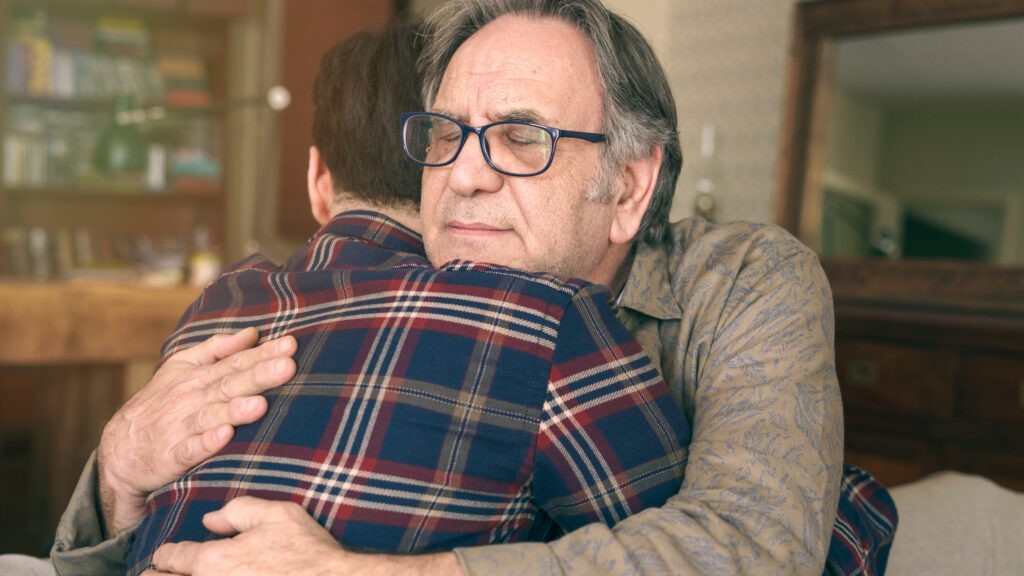Making an Impact: JFS Client Determined to Survive and Thrive

In the Making an Impact series, clients and services are featured to expand awareness of the wide array of help available at JFS and to ensure donors understand the lives they touch and the difference they make throughout the community. Names have been changed to protect privacy.
JFS client and Holocaust survivor “Alex” was just a baby when WWII began. As the Germans marched his Russian family to a death camp, his mother tossed him to a lady standing on the side of the road watching the procession. The startled woman brought Alex home and raised him as her own. When Alex was an adult, she told him of his Jewish heritage and the story of his family.
After Alex’s own son was grown with a family of his own, they moved to the U.S. But their relationship became strained. Alex and his son argued and eventually, all communication between them stopped. Alex was alone and became depressed. During his initial assessment with his JFS case manager, he indicated that he had no one, not even an emergency contact.
He was an independent and active man. He received only homemaking services and attended the adult day program four times each week to stay busy. He enjoyed long walks and riding his bicycle.
The adult day program called the case manager one day to let her know that Alex was in the hospital with a ruptured gall bladder. His chance of survival was only two percent. After a month with no further updates, the case manager called the hospital. She was surprised to learn that he was still in the hospital but not improving. They were preparing to transfer him to a nursing home and into a hospice program. She asked to be kept informed of his condition and where he would be placed. Since there was no emergency contact, the case manager’s tasks appeared to be at an end.
But she just couldn’t give up on Alex. Several days later, she received a call from Sholom. He was in the transitional care unit. She asked to speak directly to Alex. He was delighted to hear her voice and declared that he was a survivor, tough and ready to beat this as well. His son found out he was very sick and had come to visit and repair their relationship, and this “miracle” had given him the determination to fight.
The case manager got his son’s phone number and called him right away. They talked at length about Alex and his present condition. “He is very stubborn,” he said. “If he set his mind to it, he will make it happen.”
As his son predicted, Alex began to improve. He was resolute about going home. Once there, the case manager visited to conduct an assessment. Alex was eligible for personal care assistance, homemaking, Lifeline, home medical equipment, and a skilled nurse.
But he longed to return to the adult day program. With a drainage tube still in place and COVID spreading throughout congregated settings, Alex’s doctors would not allow it. His son made a deal with him. If he followed the doctor’s orders, he would do anything his father asked. Alex reluctantly agreed.
It took a year, but the drainage tube finally came out, the wound healed, and Alex returned to the adult day program. He and his son enjoy a close, loving relationship.
